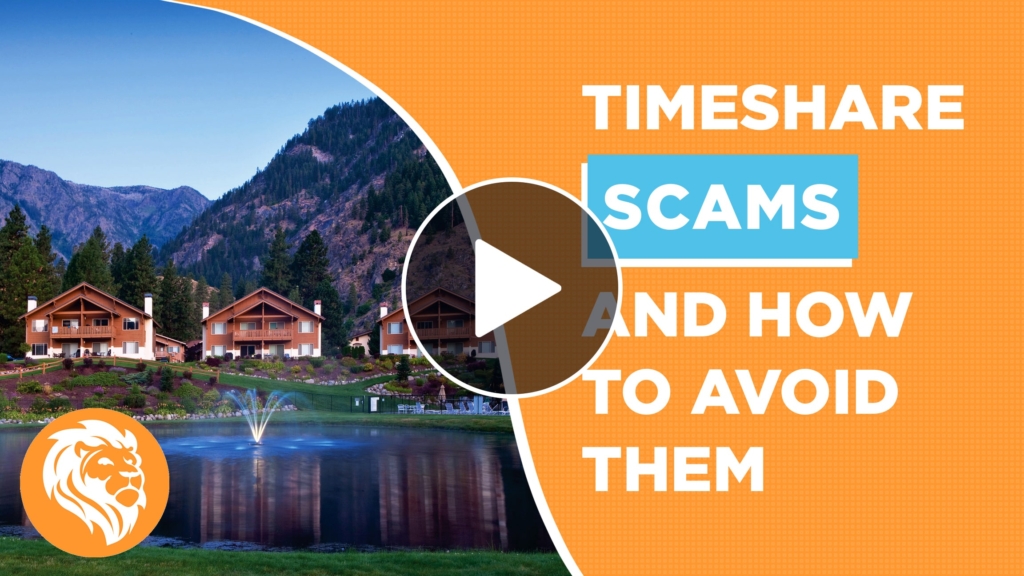There are many misconceptions about the timeshare industry, the biggest of which being that timeshares are a scam. Today, the majority of timeshare owners find great value in being able to take part in flexible travel to highly desired destinations around the globe—and save money while doing so! However, there are many scams associated with timeshares that often come from third parties, and that is what we plan to discuss in this blog. So, is a timeshare a scam? The answer is no, and you’ll soon learn why.
- Introducing ARDA and the Better Business Bureau
- "Timeshare Presentations Are High Pressure"
- Are Timeshares Scams Financially?
- Timeshare Maintenance Fees Are Not a Scam
- "The Timeshare Resale Market Is a Scam"
- "It's Difficult for Timeshare Owners to Get Out"
- Timeshare Industry Scams to Avoid
- Buy Resale Points or Weeks at Top Timeshare Companies
- Sell Timeshare With Fidelity Real Estate
Introducing ARDA and the Better Business Bureau

Not all timeshares mean scams are on the horizon. In fact, the American Resort Development Association (ARDA) and the Better Business Bureau (BBB) are key players in proving this point. These two organizations work side by side to ensure that developers and business alike can be labeled as trustworthy. ARDA enforces a strict code of ethics that its members must abide by in order to maintain their membership. Similarly, the BBB provides accreditation to business who operate with honesty and integrity.
When looking at timeshare developers and resale companies, you’ll notice the ARDA and BBB rating on their websites. And if you don’t, you may want to reconsider working with that company. Be wary of entering timeshare agreements with companies lacking these qualifications. You may save yourself a headache (and a scam).
“Timeshare Presentations Are High Pressure”
In earlier times, timeshare salespeople may have been known for their high pressure sales tactics, but those days are over. Again, today’s top developers must abide by a strict code of ethics that prevents them from misinforming owners or potential buyers, especially during the sales pitch of a timeshare presentation.
Many buyers even attend two or more sales presentations with the resort before making a purchase. If timeshare presentations were so high pressure, it’s likely there wouldn’t be very many people that make it out of that first presentation without becoming a timeshare owner.
With so much available technology, most people research the resort and brand before even going into a presentation. Yet, the number of owners continues to grow every year. Many timeshare owners went into their presentations with an idea of what they were looking for, and you should too.
Are Timeshares Scams Financially?
Many people are under the impression that timeshares are a good “investment,” but that isn’t necessarily the case. If you’re thinking of a financial investment, then no, timeshares are not a good investment. If any industry professional ever tells you that you can make money off of your timeshare, do not believe them. In reality, a timeshare will not go up in value. Timeshares worth $10,000 will not be worth the same at a later date. A timeshare might not be for you if you have other financial obligations that require a real investment with a return.
But is a timeshare a scam because of this? No. Most assets we purchase don’t appreciate in value. Cars, technology, and other everyday items are known for depreciating. Do we consider those a scam? No. So, why should we believe that timeshares are a scam?
Invest in Yourself with Timeshares

Though timeshares themselves are not a financial investment, the family vacation you receive each year is definitely an investment in yourself. Moreover, timeshares do help people and families save thousands on vacations for a lifetime. By purchasing vacation ownership now, you are pre-paying for vacations at today’s cost. A hotel room now might cost one price and then tomorrow cost even more. With a timeshare, you’re locking in one price at today’s value. In addition, timeshare properties offer more space in your timeshare unit than the average hotel room. Timeshares aren’t a bad deal for those who use them and vacation every year.
Not to mention, since timeshare companies have shifted to a points-based system, you can travel to different locations like you would if you were visiting a new hotel each year but with today’s rates.
Most timeshares started as one week-long vacation visiting the same destination each year. Some timeshares still work that way, which is great for families who want to visit the same area or home resort each year. For example, if your family visits Disney World every year, then a timeshare purchase in Orlando allows you to keep that tradition alive while saving money.
Timeshare Maintenance Fees Are Not a Scam
It’s helpful for most timeshare owners to think of their maintenance fees as their HOA. In fact, most resorts currently use an HOA to present these annual fees. Like a car, house, or vacation home, a resort needs maintenance. If you want to own a unit at a specific resort or with a vacation club, it doesn’t stay beautiful without some help. Resorts need regular maintenance to stay up to date, stay clean, and pay employees. With excellent customer service, new renovations, and consistent maintenance, regular timeshare maintenance fees are necessary. If you see these as a burden, that’s fair. However, maintenance fees are no secret when it comes to timeshares. Is a timeshare a scam due to maintenance fees? Well, your car payments and oil changes are not a scam, so why would timeshare maintenance fees be?
“The Timeshare Resale Market Is a Scam”
Well, this is plain false. There is a legitimate (and thriving) timeshare resale market, and we can prove it. As the Featured Reseller for Wyndham, the Recommended Resale Broker for DVC, and more, Fidelity Real Estate is known for helping owners sell their timeshares because there are buyers out there.
In fact, over 90 percent of our new DVC listings are sold within 90 days. We’ve helped thousands of Hyatt, Hilton, Holiday Inn, and Marriott vacation owners find the right potential customer for their timeshare. The resale marketplace is perfect for owners looking to add on to their initial ownership for less. Or even for a new owner to test the waters before taking the plunge. If you’re looking to leave your timeshare, Fidelity can help you sell your timeshare without any upfront fees and possibly closing costs.
“It’s Difficult for Timeshare Owners to Get Out”

Getting out of a timeshare can take some time, but it’s not impossible. Most resort developers provide owners with easier options than ever, such as Wyndham’s Certified Exit Program. Are timeshares scams? If so, it would be impossible to get out of them.
As an owner, you are not stuck in your contract for the rest of your life. In fact, almost 85 percent of today’s owners are even quite content with their timeshare! However, the reality is you can’t simply “cancel” your timeshare contract. Exit companies or timeshare cancellation lawyers might tell you otherwise, but this is false. Most of these services are being prosecuted and receiving thousands of complaints to the BBB and state Attorney Generals.
If you need to get out of your timeshare, the first thing you should do is contact your resort. For a specified period after purchasing your timeshare, many developers allow you to cancel your contract. This is called the recission period, and it’s typically within the first few days after signing. Even if this time has passed, they can still provide solutions or even refer you to a trusted third party or reseller to help.
Timeshares themselves are not a scam. The memories and vacation experiences they create for owners is not a scam. To avoid a timeshare scam, the most trustworthy sources of information are the developer or brand, the American Resort Development Association, and their recognized members.
Timeshare Industry Scams to Avoid
The most notorious timeshare scams normally take place on the resale market. Top developers follow strict guidelines and laws put in place to protect potential buyers or their owners.
Unfortunately, the resale market has been less regulated because timeshares were created to be lifelong products. A timeshare scam on the resale market can take different forms, which are discussed below.
Charging High Upfront Fees to Sell or “Cancel” Your Timeshare
This is one of the most common timeshare resale scams. You should never pay thousands of dollars up-front to get out of your ownership. There are resources available for owners that need timeshare relief. Check ResponsibleExit.com before paying upfront for cancellation services. You should also call your resort or developer, as they may have options for owners. Moreover, many legitimate resellers, such as Fidelity Real Estate, do not charge upfront fees to list your timeshare.
Out of the Blue Phone Calls
Another common scam is when you’ve listed your timeshare for sale then receive an out of the blue phone call from someone who says they have a “buyer waiting” and need a wire fund to close the deal. First, it is illegal for a timeshare company or representative to call you without your permission. So, a legitimate timeshare reseller will never call you out of the blue. Furthermore, you should never wire any funds to one of these callers, as they will likely take the money and disappear.
Guarantees to Exit Your Timeshare Ownership
In reality, third-party companies cannot make promises to exit or sell your ownership. Even a legitimate resale company cannot guarantee that it will sell if you decide to list your timeshare for sale. Not to mention, timeshare exit teams cost upwards of $5,000. These companies often claim that they can help exit your timeshare contracts when in reality, like other contracts in life, you can’t just cancel them unless you are in the rescission period. This time period varies from location to location. The state law in Florida for a rescission period is ten days.
“Stop Paying Maintenance Fees”
You should never stop paying your maintenance fees when you are in the process of exiting or selling your ownership. When you purchase a timeshare, you enter into a contractual agreement with the resort property and timeshare developer to pay annual maintenance fees. Failure to do so would be considered a breach of contract. This will cause you to default on your timeshare ownership and negatively affect your credit.
Watch: Timeshare Scams and How to Avoid Them

Check out our video for more information about timeshare scams and how to avoid them. Discover the essential steps to safely buying or selling timeshares so you can prevent falling victim to the industry’s bad apples.
Buy Resale Points or Weeks at Top Timeshare Companies

Is a timeshare a scam? No, and especially not with Fidelity Real Estate. Timeshare ownership isn’t for everyone. But many owners find it to be perfect for them because they save money on their yearly family vacations. Do you plan to take a yearly vacation with your family? If the answer is YES! then a timeshare might be right up your alley.
Our Licensed Real Estate Brokerage has over 20 years of experience in timeshare resales. Fidelity Real Estate has a Better Business Bureau A+ rating and is a Featured Reseller for the American Resort Development Association. As a member of ARDA, we strive to provide the best customer service guidance for timeshare buyers, sellers, and owners.
If you’d like to buy a timeshare for less, we can help you find a good deal! We have timeshares for sale in all the top resorts and most sought-after locations. Whether you are looking for a specific week each year or wanting to buy points, our marketplace has you covered. Browse top timeshare developers and vacation clubs such as Disney Vacation Club, Marriott Vacation Club, Hilton, Westgate, and more. Once you find the timeshare you want to purchase, simply make an offer!
Sell Timeshare With Fidelity Real Estate
For those of you who have an unwanted timeshare, you might be interested in selling. If you’d like to sell your timeshare without any upfront fees, fill out the form below for a free one-on-one consultation. During the consultation, one of our agents will go over our process. Have questions? Contact us today at 1-800-410-5188 or email [email protected].








